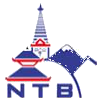What is the most strenuous job for you?
Yaks and Mules with creaking load on their back is one of the most heart rending sights you confront while trekking in the rugged trail of Nepalese mountain. You get to see a number of caravans carrying the heavy stuffs endlessly. A yak or mule can carry 60 kg. It is sad that those animals are destined to struggle along such tough and dangerous trails. If you look into their eyes, you will surely pity on their fate. However, the next moment when you see human ( the porters) strapping 120 kg on their back along the same route, you will be compelled to forget the animal's woe ! A porter is paid 60 Nepalese Rupees per kg. Unless they can lift over 100 kg, there is not much rewards!
The porters often remind me the fate of Sisyphus. He was forced to roll a massive boulder up a steep hill, only for it to roll back down each time he neared the top, condemning him to repeat this labor for eternity. Sisyphus and his punishment became a symbol of the endless struggle and futility of human existence. Although it applies in everyone's case, when you compare your back pack with their stuff you will definitely agree that you are far more fortunate. .
Life as a porter in the Everest region is a blend of physical endurance, cultural immersion, and breathtaking natural beauty. Porters are the unsung heroes of the Himalayas, carrying heavy loads for trekkers and climbers, enabling them to traverse some of the most challenging terrain on Earth.
For many porters, this isn't merely a job but a way of life passed down through generations. They hail from Sherpa, Rai, Tamang, and other ethnic communities residing in the Solukhumbu region of Nepal. From a young age, they learn the art of balancing bulky loads on their backs and navigating the rugged trails that crisscross the mountains.
The work of a porter is grueling, with each individual carrying loads that often exceed their own body weight. These loads can include food, camping gear, oxygen tanks, and other supplies necessary for expeditions attempting to conquer Everest's lofty peak. Despite the physical challenges, porters exhibit remarkable strength and resilience, trekking for days at high altitudes with seemingly boundless energy.
Their journey takes them through picturesque villages adorned with fluttering prayer flags, ancient monasteries, and terraced fields carved into the mountainsides. Along the way, they encounter fellow travelers from around the globe, forging connections and exchanging stories that transcend cultural boundaries.
Life in the Everest region is deeply intertwined with Buddhist traditions and Sherpa culture. Porters often pay homage to the mountains by offering prayers at sacred sites and performing rituals to ensure safe passage through treacherous terrain. Their deep reverence for the natural world is reflected in their harmonious coexistence with the environment, practicing sustainable methods of living and trekking.
Despite the hardship, being a porter offers a sense of camaraderie and fulfillment. Many porters take pride in their role as essential contributors to the mountain community, supporting not only themselves but also their families back home. Through their tireless efforts, they play a vital role in facilitating adventure and exploration in one of the world's most awe-inspiring landscapes, leaving an indelible mark on all who journey through the Everest region.
Hari Sharan







